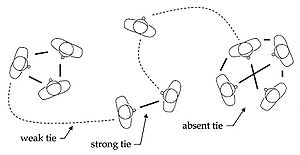The MIT Press I contributed to with a chapter is out! It is titled “The Reputation Society: how online opinions are reshaping the offline world” and edited by Hassan Masum and Mark Tovey.
It is available on MIT press and on Amazon.
The chapter I wrote is titled Trust It Forward: Tyranny of the Majority or Echo Chambers? and on it I ramble about objectivity/subjectivity, minorities/majorities, etc.
If reputation systems weight all perspectives similarly, they may devolve into simple majority rule. But if they give each user reputation scores that take only other similar users’ opinions into account, they run the risk of becoming “echo chambers” in which like-minded people reinforce each others’ views without being open to outside perspectives. Massa discusses design choices and trust metrics that may help balance these two extremes and the broader implication for our future societies.
 The book received endorsements by people I really admire.
The book received endorsements by people I really admire.
“As our societies expand from local villages to global networks, our ways of assessing and sharing reputation—the foundation of trust and community—must also evolve, but how? The thoughtful and thought-provoking essays in The Reputation Society bring a wide range of perspectives to this question, including the design of technological solutions, applications in philanthropy, science and governance, and warnings about the loss of privacy and autonomy. It is a fascinating collection of readings not only for scholars, but for anyone interested in the dynamics of the reviews and recommendations that shape our decisions—or in the future of how we will judge and be judged.”
—Judith Donath, Fellow, Berkman Center for Internet and Society, Harvard University
“Today is tomorrow’s yesterday. These provocative essays, by some of the leading thinkers in the domain of reputation systems, illuminate how reputations regulate actions across time and social distance and point to the opportunities and obstacles that reputation systems present for commerce and democracy.”
—Paul Resnick, Professor, University of Michigan School of Information
“The Reputation Society enriches the discussion of reputation by bringing together technologists, philosophers, legal scholars, and industry leaders to sort through the promise and perils we face today. It covers the practical, for those interested in the nuts and bolts of the challenges we face today, and the theoretical, for those looking to engage in broader discussions of the ethical and moral concerns. In short, a terrific and enlightening read!”
—Danielle Keats Citron, Professor of Law, University of Maryland School of Law
The list of my co-authors is also very delightful.
Trust, reputation systems, and the immune system of democracy / Craig Newmark —
Building the reputation society / Hassan Masum, Mark Tovey, & Yi-Cheng Zhang —
Designing reputation systems for the social web / Chrysanthos Dellarocas —
Web reputation systems and the real world / Randy Farmer —
An inquiry into effective reputation and rating systems / John Henry Clippinger —
The biology of reputation / John Whitfield —
Regulating reputation / Eric Goldman —
Less regulation, more reputation / Lior Strahilevitz —
The role of reputation systems in managing online communities / Cliff Lampe —
Attention philanthropy : giving reputation a boost / Alex Steffen —
Making use of reputation systems in philanthropy / Marc Maxson & Mari Kuraishi —
The measurement and mismeasurement of science / Michael Nielsen —
Usage-based reputation metrics in science / Victor Henning, Jason Hoyt, and Jan Reichelt —
Open access and academic reputation / John Willinsky —
Reputation-based governance and making states “legible” to their citizens / Lucio Picci —
Trust it forward : tyranny of the majority or echo chambers? / Paolo Massa —
Rating in large-scale argumentation systems / Luca Iandoli, Josh Introne, & Mark Klein —
Privacy, context, and oversharing : reputational challenges in a Web 2.0 world / Michael Zimmer & Anthony Hoffman —
The future of reputation networks / Jamais Cascio —
“I hope you know this is going on your permanent record” / Madeline Ashby & Cory Doctorow.
The cover of the book reads as follows.
In making decisions, we often seek advice. Online, we check Amazon recommendations, eBay vendors’ histories, TripAdvisor ratings, and even our elected representatives’ voting records. These online reputation systems serve as filters for information overload. In this book, experts discuss the benefits and risks of such online tools.
The contributors offer expert perspectives that range from philanthropy and open access to science and law, addressing reputation systems in theory and practice. Properly designed reputation systems, they argue, have the potential to create a “reputation society,” reshaping society for the better by promoting accountability through the mediated judgments of billions of people. Effective design can also steer systems away from the pitfalls of online opinion sharing by motivating truth-telling, protecting personal privacy, and discouraging digital vigilantism.

 Ok, I agree.
Ok, I agree. funding programme for research in information technology, for the opening of competitive calls for collaborative research projects, in 3 areas: Semantic Systems and Services, Trust in IT Systems and Visual Computing.
funding programme for research in information technology, for the opening of competitive calls for collaborative research projects, in 3 areas: Semantic Systems and Services, Trust in IT Systems and Visual Computing.![Reblog this post [with Zemanta]](https://i2.wp.com/img.zemanta.com/reblog_e.png?w=625)

